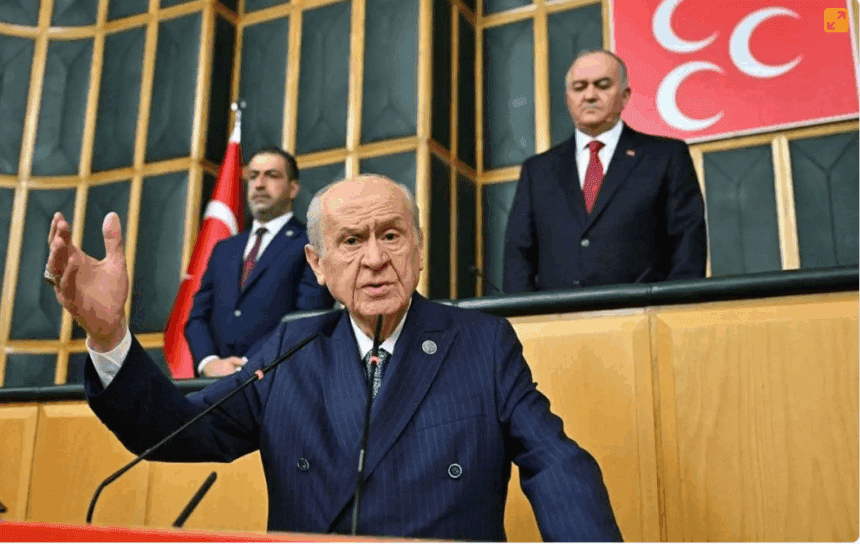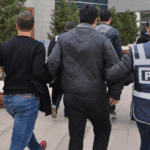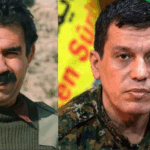Devlet Bahçeli, the leader of Turkey’s far-right Nationalist Movement Party (MHP), has praised Turkish lawmakers for meeting with Abdullah Öcalan, the jailed founder of the outlawed Kurdistan Workers’ Party (PKK), at his island prison and insisted the talks were legitimate even if critics claim they violated the constitution or existing laws.
The visit, which took place on İmralı Island and was confirmed late Monday by the speaker of parliament, marks the most visible step yet in Turkey’s fragile transition from four decades of armed conflict to a contested “post-conflict” political framework. The PKK, listed as a terrorist organization by Turkey, the United States and the European Union, has waged an insurgency since 1984 that has claimed tens of thousands of lives and reshaped Turkish politics and security policy.
Bahçeli embraces controversial visit
Speaking at his party’s weekly group meeting in parliament, Bahçeli – a key ally of President Recep Tayyip Erdoğan – described the lawmakers’ encounter with Öcalan as a “historic development” and a necessary step if Turkey is to close the chapter of armed struggle.
“I do not care who accuses us of breaking the law,” Bahçeli said, responding to critics who argue that meeting with a man convicted of leading a terrorist organization breaches both constitutional and criminal provisions. “If this initiative helps remove violence from Turkish life, I would even accept the gallows,” he added, using unusually dramatic language for a politician who long opposed any engagement with Öcalan.
Bahçeli also framed Öcalan as an indispensable actor in the government’s stated goal of creating a “terrorism-free Turkey,” a phrase the ruling Justice and Development Party (AKP) has adopted to describe its plan for ending the conflict without formally returning to the peace negotiations that collapsed in 2015.
A new commission for a post-conflict era
The lawmakers’ visit took place under the authority of the National Solidarity, Brotherhood and Democracy Commission, a 51-member parliamentary body created in August to oversee Turkey’s political transition following the PKK’s ceasefire declaration and announcement that it would dissolve itself. Earlier this year, the group held a symbolic ceremony marking the end of its armed campaign, while emphasizing that the “Kurdish question” would now be pursued by democratic means.
The commission is tasked with managing this shift on multiple fronts: designing legal and institutional reforms, addressing the status of former fighters, and crafting a narrative of national reconciliation that the government hopes will be acceptable to both Turkish nationalists and Kurdish constituencies.
According to parliamentary officials, one lawmaker each from the AKP, the MHP and the pro-Kurdish Peoples’ Equality and Democracy Party (DEM Party) travelled to İmralı for the talks. The main opposition Republican People’s Party (CHP), the nationalist opposition İYİ (Good) Party and several smaller parties declined to participate, exposing deep fault lines over how – and with whom – peace should be negotiated.
The speaker of parliament confirmed that the delegation returned to Ankara with a full set of written minutes from the meeting, which will be shared with the rest of the commission and used to shape the next stage of the process. Members are expected to reconvene in the coming days to examine the notes and begin drafting the first pieces of legislation for Turkey’s emerging post-conflict framework.
Opposition backlash and accusations of secrecy
Opposition reactions were swift and sharply divided.
The CHP said it objected less to the idea of dialogue and more to the way the İmralı visit was decided. Party officials argued that such a politically and morally charged step should not have been planned “behind closed doors” and demanded full transparency in parliament before any further contact with Öcalan.
The İYİ Party, by contrast, denounced the delegation outright. In statements that echoed earlier nationalist rhetoric against the 2013–2015 peace process, İYİ leaders accused the government of “legitimizing a terrorist leader” and called on voters to hold the AKP-MHP alliance accountable.
“We are told there is a ‘New Turkey,’ but the public is kept in the dark while secret delegations visit İmralı,” one İYİ lawmaker said. “Those who shake hands with a convicted terrorist must answer to the nation.”
Öcalan’s central but contested role
Despite years of isolation on İmralı, Öcalan has periodically re-emerged as a pivotal figure in efforts to end the conflict. His letters and messages formed the backbone of the earlier peace process between 2013 and 2015, when delegations from the pro-Kurdish HDP (the DEM Party’s predecessor) regularly visited the island and carried his statements to the public.
That process collapsed amid rising violence, domestic political tensions and regional turmoil linked to the war in Syria. Since then, public access to Öcalan has been tightly controlled, and most official references to him have been couched in the language of criminal justice and counterterrorism.
Bahçeli’s new framing – presenting Öcalan as “key” to a terrorism-free future – marks a notable departure from his long-standing hard line, even as he insists that the state’s authority and unity remain non-negotiable.
DEM Party: peace requires all actors, not just Kurds
For the DEM Party, the İmralı visit is both a vindication of long-held demands for dialogue and a reminder of how fragile the process remains.
DEM Party Co-chair Tülay Hatimoğulları welcomed the trip as a “historic step,” but stressed that peace cannot be built through narrow, opaque arrangements. “If we are sincere about a democratic solution to the Kurdish issue, all political actors must be involved, not only Kurds,” she said. “This is not a technical security problem that can be parked in a commission and forgotten. It is a question that goes to the heart of democracy in Turkey.”
Hatimoğulları warned against treating the Kurdish conflict merely as an electoral tool. “We have seen before how this issue is taken off the shelf before elections and then pushed back into the cupboard when it becomes inconvenient,” she said. “If this process is to succeed, it must be anchored in rights, justice and truth, not just short-term political calculations.”
Mixed signals from the ruling alliance
Confusion over the government’s messaging deepened after the AKP’s representative in the delegation, Hüseyin Yayman, initially denied taking part in the visit before later confirming that he had. The contradictory statements fueled speculation about internal divisions within the AKP and unease in parts of the ruling bloc over a visible role for Öcalan.
Several pro-government newspapers did not feature the İmralı visit on their front pages the next day, a notable omission in a media environment where coverage often mirrors the government line. Analysts interpreted this silence as a sign of concern within the AKP that openly publicizing contact with Öcalan could alienate conservative and nationalist voters who oppose any engagement with the PKK, even in a post-conflict context.
Bahçeli appeared to address those fears indirectly in his speech, accusing critics of “hiding behind legal arguments to sabotage peace” and insisting that law and politics could be reconciled if the end goal was a Turkey free of political violence.
Legal controversy and questions of legitimacy
Legal experts are divided over whether the visit breaches existing statutes governing communication with prisoners convicted of terrorism-related offenses. Some constitutional lawyers argue that parliament has broad authority to establish commissions and mandate delegations, especially when acting in the national interest and with the speaker’s approval. Others warn that without explicit legal amendments or a clearer transitional-justice framework, such steps risk undermining the rule of law.
For now, the government appears to be relying on the commission’s mandate and the political weight of the AKP–MHP majority to push ahead. Officials say any necessary legal changes will be discussed once the commission has completed its initial review of the İmralı minutes.
What comes next
The commission’s next meetings are expected to focus on turning broad political intentions into concrete proposals. Among the issues likely to be on the table are:
- The legal status and reintegration of former PKK members, including possible amnesty arrangements or sentence reductions for those not implicated in serious crimes.
- Reforms to local governance and cultural rights, particularly in Kurdish-majority regions, touching on language, education and representation.
- Security-sector restructuring, to address the legacy of counterinsurgency and reassure both Kurdish communities and Turkish nationalists that the state will remain strong while scaling down emergency measures.
- Mechanisms for truth-telling and symbolic accountability, which Kurdish actors say are essential for genuine reconciliation but which many nationalists view with suspicion.



